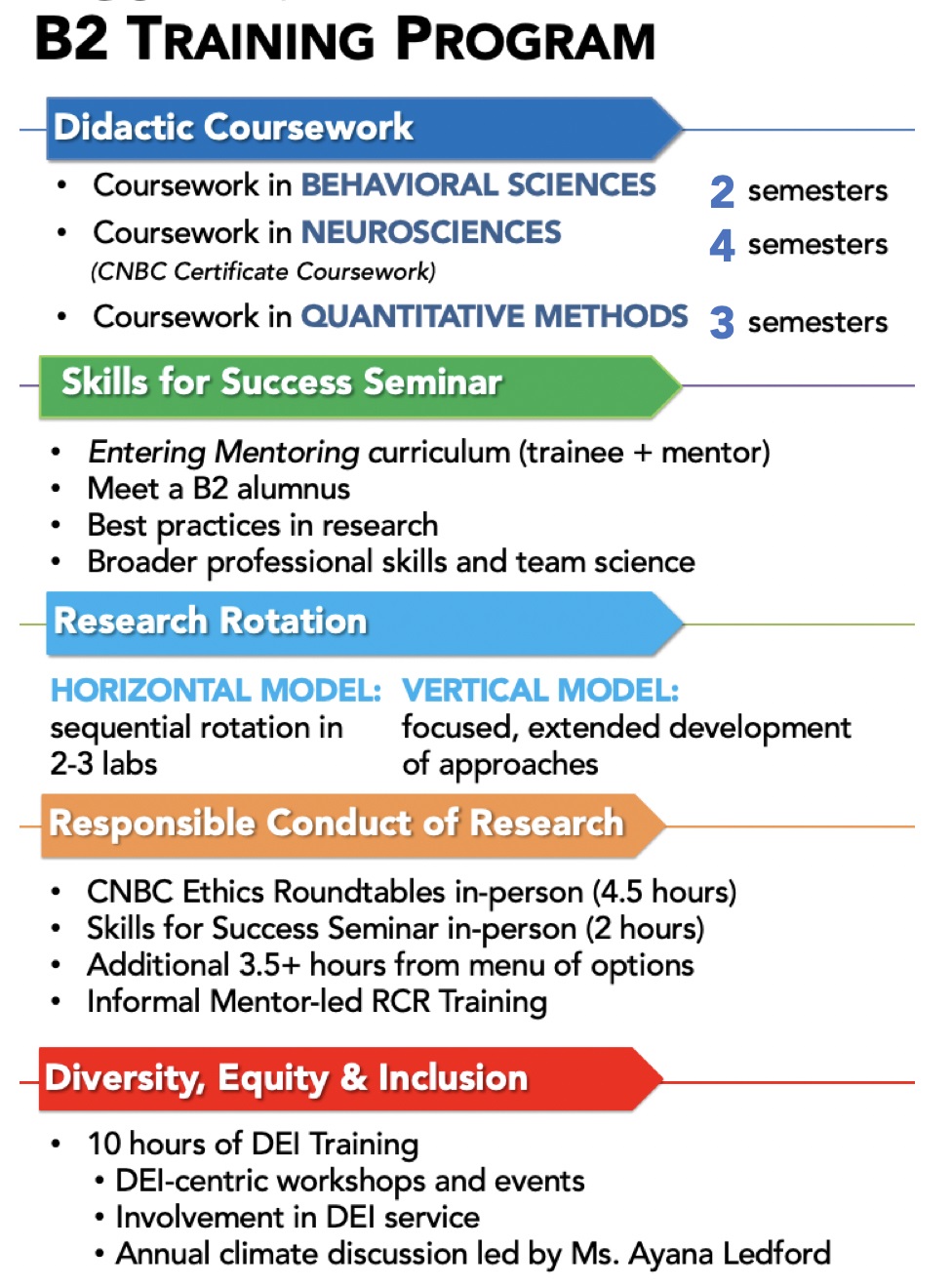The B2 Program
Future health advances depend upon researchers who can work at the interface of behavioral and biomedical sciences.
The emergence of cognitive neuroscience in the 1980s marked the beginning of intensive efforts to bridge between behavioral research on cognitive processes and neuroscience research on the structure and function of the brain. Early work at this behavior-brain interface focused largely on basic questions in the domains of language, memory, attention, perception, and motor control. The tremendous success of the cognitive neuroscience perspective led to an extension of neuroscience principles to new areas of behavioral research (e.g., affective neuroscience, social neuroscience, etc.). The efforts reflect a common goal of understanding the relationship between human behavior and underlying neural substrates. This growth has occurred in both basic and translational research, with widespread use of neurobehavioral methods to study a variety of patient and at-risk populations, and to inform and evaluate interventions to improve health. As the field of cognitive neuroscience has matured, the need for investigators with deep and rigorous training at the behavior-brain interface has increased. The Behavioral Brain (B2) Research Training Program responds to this need.
The B2 Program addresses this need by training next- generation behavioral scientists who can skillfully incorporate neuroscience perspectives and methods to make transformative discoveries in addressing mechanisms of health and disease.
Since 2007, the B2 Program has been generously supported by the National Institutes of Health, National . Institute of General Medical Sciences to allow us to build a training program that has served 50 predoctoral students across Carnegie Mellon and University of Pittsburgh.
The B2 Program has the following specific aims for students committed to work at the interface of the behavioral and brain sciences:
- Individualized Co-Mentorship committees that guide trainees through our program and support their development as interdisciplinary researchers;
- Deep training in behavioral science, through coursework and a mentored independent research program. This training focuses on psychological science, but also provides didactic exposure and research opportunities involving non-human primate and rodent behavior.
- Cross-training in neuroscience, through coursework and experiential research. This training focuses on systems-level neuroscience involving humans, non-human primates, and rodents. Exposure to other areas of neuroscience comes primarily from coursework, but experiential research in these areas is available.
- Development of flexible and rigorous skills needed for success in the biomedical workforce, through didactic and experiential training in scientific rigor, the responsible conduct of research, and broad professional skills.
- Training in team science and cultural awareness, through exposure to principles of holistic mentorship and required engagement in diversity, equity, and inclusion (DEI) learning.
